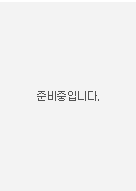

PARTNER
검증된 파트너 제휴사 자료
감사시간의 공시 불일치, 감사인 대응 그리고 감사품질 (Inconsistent Disclosure on Audit Hours Released in Annual and Audit Report, Auditor’s Response and Audit Quality)
45 페이지
최초등록일 2025.03.12
최종저작일
2019.08

-
서지정보
· 발행기관 : 한국회계학회
· 수록지 정보 : 회계학연구 / 44권 / 4호 / 129 ~ 173페이지
· 저자명 : 정남철, 정석우
초록
본 연구는 회사의 사업보고서와 감사인의 감사보고서에 각각 기재된 감사시간의 공시 불일치(이하, ‘공시 불일치’) 정도를 감사인이 회사의 통제위험으로 인지하여 이를 감사가격 및 노력에 반영하는지, 공시 불일치가 감사품질과 관련되는지 조사한다. 아울러 감사인의 추가적인 감사노력 투입이 공시 불일치와 감사품질 간의 관련성에 미치는 영향을 분석한다.
2014년부터 2016년의 국내 상장회사 표본을 이용한 분석 결과, 공시 불일치 정도는 감사보수와 유의한 관련성을 보이지 않았고 감사시간과는 유의한 음()의 관련성을 나타냈다.
이는 부실 기재에 따른 감사인의 법적 비용의 부담이나 처벌 가능성이 낮은 감사시간의 공시 불일치를 감사인이 중요한 감사위험의 징후로 인지하지 않음을 보여준다. 또한 감사인은 공시 불일치 정도가 큰 회사를, 감사정보에 대한 관심이 낮은 회사로 간주하여 감사노력을 감소시키는 것으로 해석된다. 그리고 공시 불일치는 재량적 발생액과 유의한 양(+) 의 관련성을 보여 감사품질 악화와 관련되었고, 이와 같은 현상은 비정상 감사시간이 0 이하인 표본에서만 관측되었다.
본 연구는 다음의 정책적 시사점을 갖는다. 첫째, 감사인의 적극적인 대응이 누락된 통제위험 요소는 감사품질 저하와 관련될 수 있으므로, 규제 당국은 회계 감리 시 감사인의 위험평가 과정을 집중적으로 검토하고, 공시 불일치 정도가 중요하게 큰 회사를 감리 대상 선정 시 고려할 필요가 있다. 둘째, 본 연구는 통제위험 요소와 감사품질의 음()의 관계가감사노력의 크기에 따라 보완됨을 보였다. 이는 감사시간이 과소 투입되지 않도록 규제 당국의 감사시간에 대한 지속적인 모니터링이 지속적으로 필요함을 시사한다.영어초록
This study analyzes auditors consider inconsistent disclosure on audit hours released in annual report versus audit report (hereinafter “disclosure inconsistency“) as control risk and reflect it to audit price and effort. And, the study investigates whether such inconsistency is related to audit quality.
Using a sample of listed companies in Korea from 2014 to 2016, the study did not find a significant relationship between the degree of disclosure inconsistency and audit fees. However, we found a significant negative relationship between the degree of disclosure inconsistency and audit hours.
This shows that auditors do not perceive the disclosure inconsistency, which is less likely to be penalized by regulatory bodies and other stakeholders, as a sign of significant audit risk. In addition, auditors consider firms with a high level of disclosure inconsistency as one which are less interested in audit information, thereby reducing auditing efforts. Furthermore, disclosure inconsistency was positively related to discretionary accruals, indicating that it is associated with the deterioration of audit quality.
The results of this study have the following policy implications. First, the control risk without active response of auditors is related to the deterioration of audit quality. Second, this study suggests that continuous monitoring about auditors’ audit hours by the regulatory authorities is necessary to ensure that auditors spend enough audit hours for audit risk.참고자료
· 없음태그
-
자료후기
-
자주묻는질문의 답변을 확인해 주세요

꼭 알아주세요
-
자료의 정보 및 내용의 진실성에 대하여 해피캠퍼스는 보증하지 않으며, 해당 정보 및 게시물 저작권과 기타 법적 책임은 자료 등록자에게 있습니다.
자료 및 게시물 내용의 불법적 이용, 무단 전재∙배포는 금지되어 있습니다.
저작권침해, 명예훼손 등 분쟁 요소 발견 시 고객센터의 저작권침해 신고센터를 이용해 주시기 바랍니다. -
해피캠퍼스는 구매자와 판매자 모두가 만족하는 서비스가 되도록 노력하고 있으며, 아래의 4가지 자료환불 조건을 꼭 확인해주시기 바랍니다.
파일오류 중복자료 저작권 없음 설명과 실제 내용 불일치 파일의 다운로드가 제대로 되지 않거나 파일형식에 맞는 프로그램으로 정상 작동하지 않는 경우 다른 자료와 70% 이상 내용이 일치하는 경우 (중복임을 확인할 수 있는 근거 필요함) 인터넷의 다른 사이트, 연구기관, 학교, 서적 등의 자료를 도용한 경우 자료의 설명과 실제 자료의 내용이 일치하지 않는 경우
찾으시던 자료가 아닌가요?
지금 보는 자료와 연관되어 있어요!
문서 초안을 생성해주는 EasyAI



